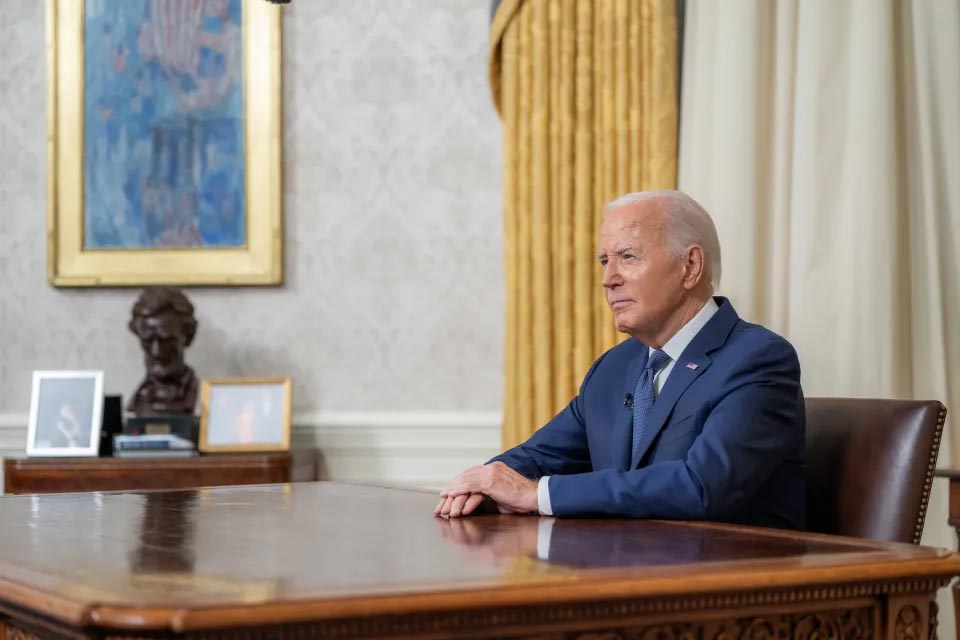This story originally appeared in GW Today.
President Joe Biden’s decision yesterday to end his re-election campaign came three weeks after the first presidential debate with former President Donald Trump, a halting performance that unleashed a steady drip of calls for him to step aside from other elected Democrats and donors.
Peter Loge, director of the George Washington University’s School of Media and Public Affairs, talked with GW Today about Biden’s decision and what it means for Democrats and Republicans moving forward—about 100 days away from the general election in November.
Q: How is Joe Biden's decision to end his re-election campaign similar to other incumbent presidents who have done so? Or are these circumstances unique?
A: This is a unique situation. We're barely more than 100 days from election day, and campaigns are much more expensive, expansive and complicated than in the past. It is tempting to compare new and surprising events to older, more familiar ones. But that we can make a comparison doesn't mean the comparison is accurate or appropriate.
Q: Biden (as well as the Clintons) have said they support Vice President Kamala Harris as the party's nominee. How likely is it that Harris will get the nomination at the DNC?
A: Statistically, dart-throwing monkeys are better at predicting political outcomes than pundits are. As recently as last week I was dismissing the idea that Biden would get out. That said, it seems like Harris is consolidating support and seems most likely to be the nominee.
Q: What is the process for Democrats to select a new nominee?
A: A good and open question to which we may get an answer between the time I send this email and you go to press. It could be a virtual vote in the next week or so, or it could be a vote from the floor of the Democratic National Convention in Chicago.
Q: If Harris is the nominee, would her choice of vice president make any difference for the ticket or would that selection have the same impact as previous VP selections—not making much difference?
A: Historically, vice presidential picks don't make much of a difference. This time all bets are off. I leave that to my colleagues in SMPA and political science to sort after the election is over.
Q: What challenges do the Democrats face with this change happening 100 days out from the general election?
A: Democrats face a couple of overlapping challenges. Voters continue to be frustrated by immigration and inflation, the Democrats have spent three weeks telling voters that Biden is old and out of touch rather than reminding voters how much they dislike Trump and telling voters that the market and wages are up while inflation and unemployment are down.
In addition, most Americans don't know who Vice President Harris is. The Republican party is trying to define Harris as Biden only more so. Democrats want to define Harris as continuing Democratic policies that Americans support.
Q: How do you expect the Trump campaign to respond to both Biden's stepping aside and Harris the likely nominee?
A: We're already seeing it play out. First, it's Biden only more-so on the economy and social policy. Second, President Biden charged Vice President Harris with dealing with America's southern border, and no one likes how that's going. Third, there are claims of a conspiracy to hide that Biden is sicker and more out of touch than anyone knew. Finally, I expect we'll see some conservatives pretending to be liberals attacking Vice President Harris from the left on her record on criminal justice policy when she was Attorney General of California.


